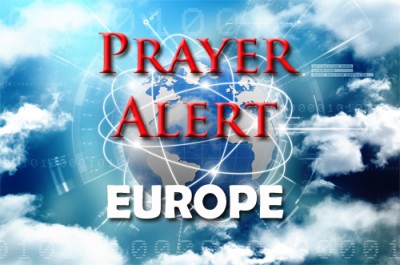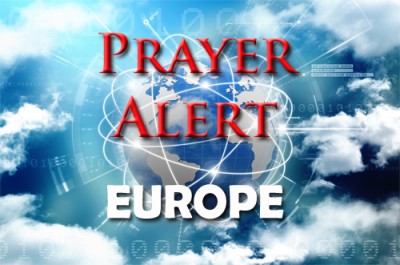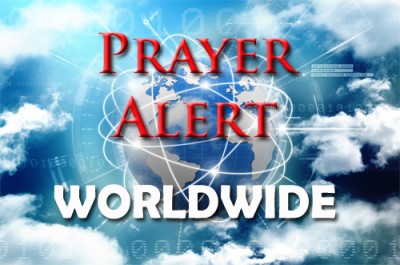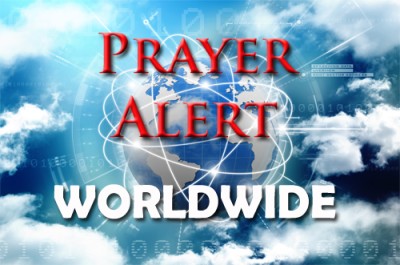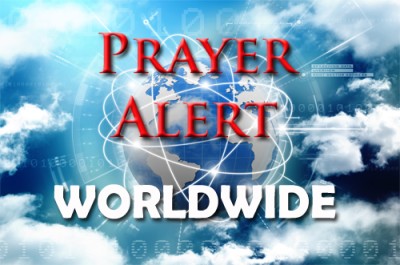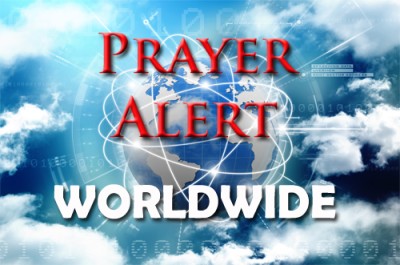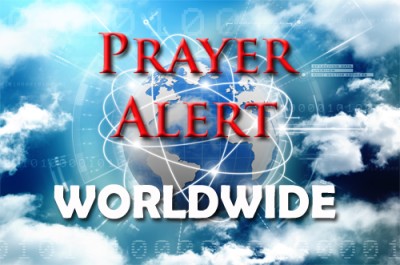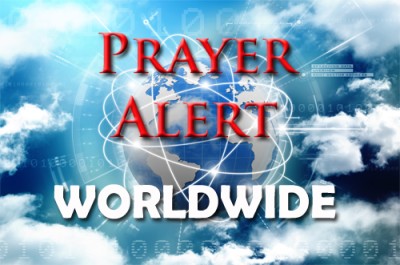Russia / Ukraine: day 365 of the invasion
23 Feb 2023Pray for the women in Ukraine. Twelve months after Russia invaded the country, they are increasingly vulnerable to sexual violence with reports of abuse on the rise, according to a leading humanitarian organisation in the country. Women fleeing from bombed houses and their hometowns are reporting attacks occurring in the home and in communal shelters. UN secretary general Antonio Guterres condemned Russia’s invasion of Ukraine as ‘an affront to our collective conscience’, saying Friday’s anniversary is ‘a grim milestone for the Ukrainians. Pray for the UN to make wise decisions regarding Ukraine, ammunition and war machines. Joe Biden vowed that the US would defend ‘literally every inch of NATO territory’ ahead of talks with NATO’s secretary general and leaders of the Bucharest Nine (B9), a collection of nations on the most eastern parts of the NATO alliance and closest to Russia. Pray for aggressive talk to end and peace talks to begin.
Russia: conflict creating family divisions
23 Feb 2023It is hard to get an accurate picture of how Russians feel about invading Ukraine, given legislation which outlaws any comments discrediting the military or referring to the invasion as a war rather than a ‘special military operation’. But a survey by an independent Russian research group in November suggests it is dividing generations. 75% of those aged 40 and over support the war, compared with 62% of those aged 18-24. The younger generation get their news from outlets such as YouTube and social media. The generation brought up during the Soviet Union absorb the official government narrative via state-run TV, so support military action. Despite the risks, Russian filmmakers have recorded the impact that the invasion of Ukraine has had on Russians. Many thousands have fled. Those that stayed have to choose: support the war, oppose it, or stay silent.
Turkey: active remnant church
23 Feb 2023The death toll is tens of thousands. The devastation and trauma is palpable, after the 7.8-magnitude earthquake shook Turkey. Over several years, many foreign Christians have been expelled from Turkey. Most of those remaining are local Turkish believers, 0.5% of the population. Amid the suffering, Turkish Christians are helping one another and embracing Muslim neighbours with aid. In areas where rescue teams were slow to arrive, believers rushed in from other parts of Turkey to help. Their presence is opening doors to offer Gospel comfort. We pray for the grieving. We pray for the spiritually lost. Lord Jesus, break down deep-seated prejudices against Christianity. Move through your remnant church.
China: demonstrators disappear
23 Feb 2023As China declares victory over the pandemic, the landmark protests in November which spelled the end for zero-Covid rules have begun fading from memory. But as the country moves on, many who took part in the demonstrations are missing, taken by authorities in a quietly deepening crackdown on dissenters. Thousands rallied against restrictive Covid policies in White Paper protests, holding up blank white sheets in a rare show of criticism of the Communist Party and its leader Xi Jinping. Police made few arrests at the time. Now, months later, scores of those protesters are in police custody, say Chinese activists. International rights groups and foreign universities have called for their release. Activist groups have published lists naming the detainees from Beijing, Shanghai, Guangzhou, and Nanjing protests. Many prisoners are well-educated; some attended universities in the UK and America. They include writers, journalists, a musician, a teacher and a financial industry professional.
Turkey: third earthquake buries more people
23 Feb 2023Rescuers once again searched for people under rubble after a 6.4 magnitude earthquake and 5.8 aftershock struck near Antakya, where massive quakes had devastated communities two weeks earlier. Buildings weakened by previous tremors collapsed this time. The death toll is relatively low because the area was almost empty after being hit by previous quakes. 294 people were injured - 18 of them seriously. Pray for God to comfort survivors like Ali who was looking for the bodies of his family after the previous earthquakes when the latest tremors hit. He said, ‘We grabbed each other and right in front of us, the walls started to fall’. Pray for the 865,000 people living in tents, 23,500 in container homes, and the 376,000 in public guest houses and student dormitories. Meanwhile Turkey is widening investigations into building servicers violating safety standards. By 23 February 564 suspects were identified, 160 arrested, and many more were under investigation.
North Korea: food shortages
23 Feb 2023North Korea is teetering on the brink of famine. Their official newspaper urges economic self-reliance, arguing that relying on external aid to cope with the food situation would be like taking ‘poisoned candy’. A US thinktank said North Korea is reeling from floods, typhoons and global sanctions over its nuclear programme and is on the brink of famine. Food insecurity is at its ‘worst since the 1990s famine’, and food availability is likely below the bare minimum for human needs. Experts say the current food shortages, triggered by poor harvests amid extreme weather conditions, have been exacerbated by lockdowns and a sharp reduction in trade with China due to border closures during the pandemic. Pyongyang called for an ‘urgent’ meeting of the Workers’ Party on agriculture this month. It is rare for such a special meeting. They have also reduced daily food rations to soldiers for the first time since 2000.
Brazil: deadly storms
23 Feb 2023People having a pre-Lent holiday at San Sebastiao beach had two feet of torrential rain. Sao Paulo state’s floods also claimed lives on carnival weekend. TV and social media showed entire areas under water, hillside houses swept away by mud, flooded highways, cars destroyed by fallen trees and more. By 23 February dozens were missing, 48 had died and rescue crews were scrambling to provide necessities, but the logistics of reaching the isolated towns was creating difficulties. Not all aid has reached survivors. Criminals taking advantage of the chaos are looting trucks carrying donations. Pray for the 1,730 displaced people in churches, schools and kindergartens and the 1,810 left homeless, the injured, and those looking for the missing. Pray for those mourning the dead. Amid such devastation a two-year-old boy was rescued from a sea of mud, as was a woman giving birth. See
Saddleback Church in dispute over female pastor
23 Feb 2023America’s largest Protestant denomination is grappling with gender issues and politics. The recent Southern Baptist Convention expelled its largest and most prominent church, Saddleback Church in California, because it installed a woman pastor. Saddleback still operates as a church, and its members will not be overtly impacted. But Southern Baptist leadership’s ejection of such a high-profile member church underlines their struggles with gender, sexuality, abuse, politics and race, including criticisms from an energetic right flank that the group is drifting to the 'woke’ left. The convention also removed other churches over women holding certain leadership roles, and a Florida church over a sex abuse case. Saddleback was founded by pastor Rick Warren, who built a national profile thanks to the then innovative posture as ‘seeker-sensitive,’ attuned to those unfamiliar with, or wary of, traditional church experiences. He also wrote the best-selling book ‘The Purpose-Driven Life’.
